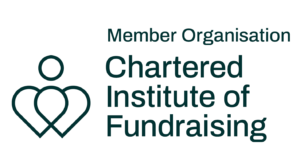Last week, Neil Bennett, our new Director of Research attended the Parent Project Muscular Dystrophy (PPMD) Conference in Arizona, USA.
Neil provided updates during his time at the Conference and we are pleased to share these with you.
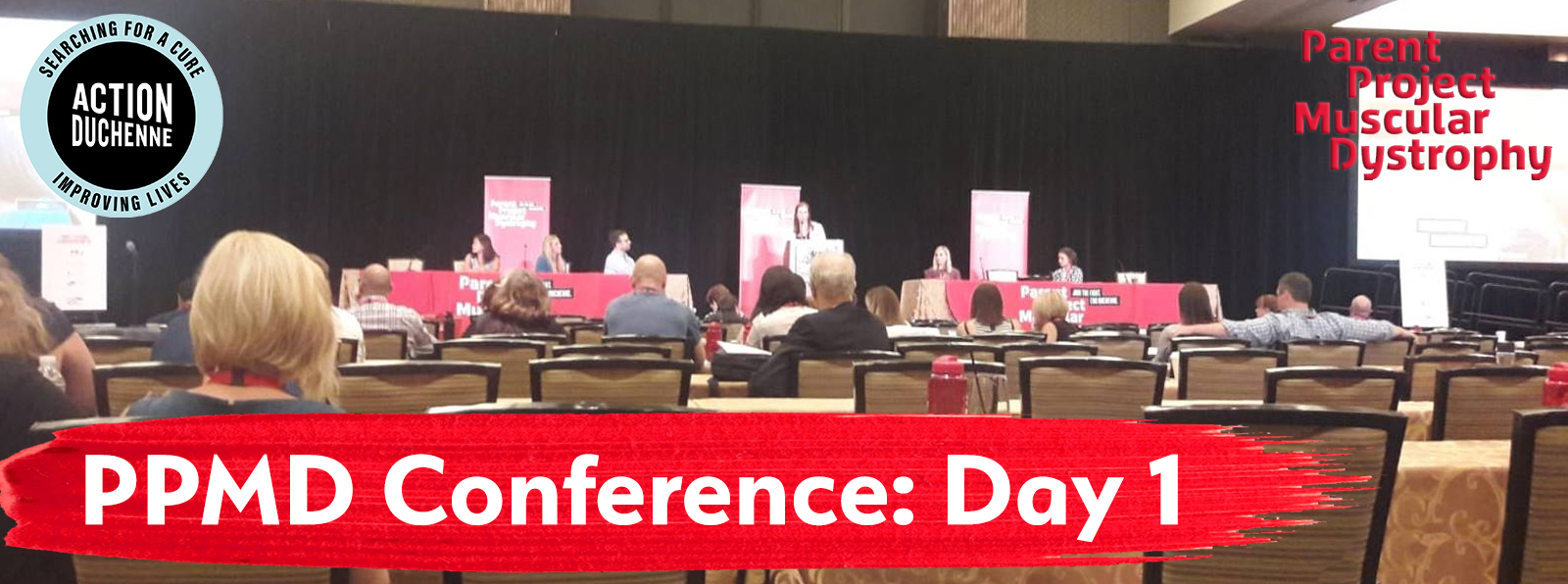
The first session on Day 1 at the Conference covered the link between genetics and the progression of Duchenne and Becker muscular dystrophy.
Using natural history data from a US Duchenne registry, researchers have looked in detail at how different mutations affect the progression of the conditions, and have identified that some mutations correlate with faster progression than others. The full results will be published soon and we’ll bring more details then.
Interestingly, it wasn’t all about the dystrophin gene! Although Duchenne and Becker are caused by mutations in that gene, mutations in other genes can affect the progression of the disease. The talks today highlighted several of these “modifier genes” that have now been identified, which could make good targets for future therapeutic approaches.
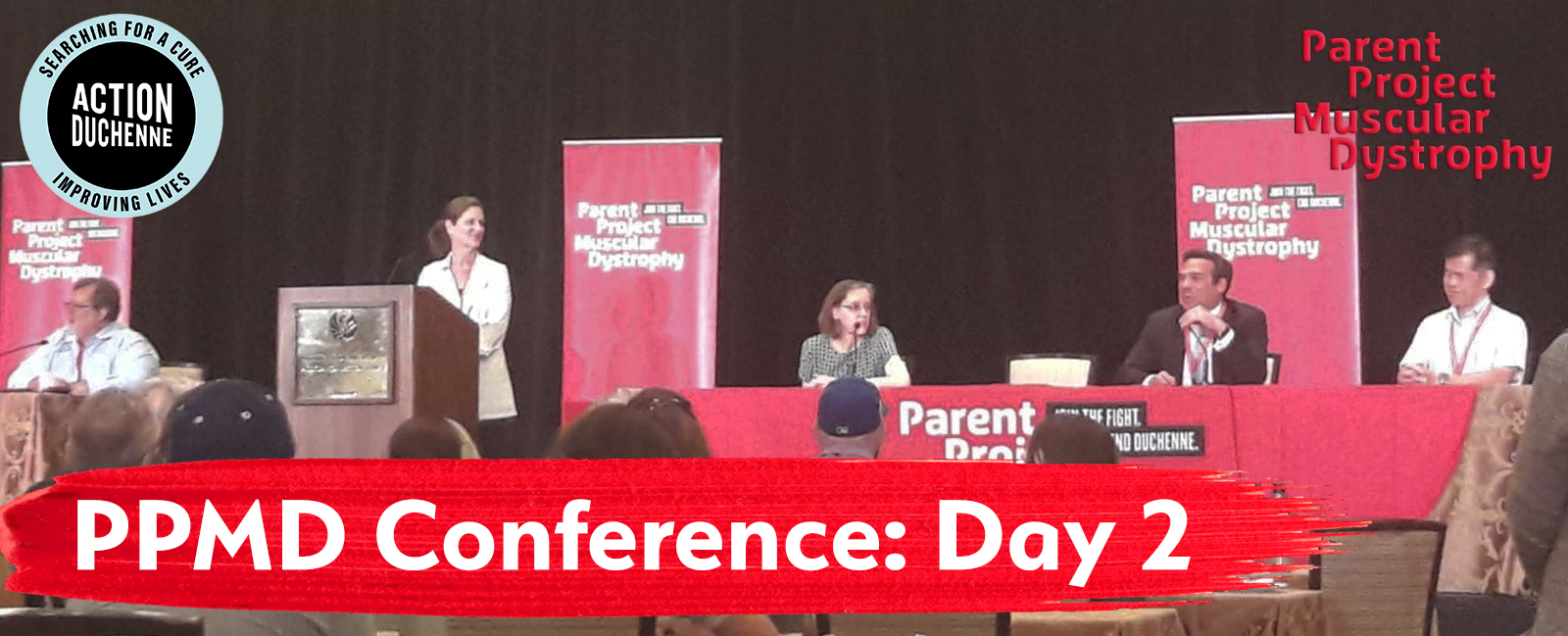
On day 2, the conference focused on updates from clinical trials that are taking place around the world.
As well as updates from PTC, the first session hosted Sarepta Therapeutics and Wave Life Sciences who gave updates on the new technology they are developing, which they hope will improve the effectiveness of exon skipping.
Sarepta announced plans to test a type of exon skipping drug called a PPMO. This is slightly different to the current exon skipping drugs like exondys 51 (which is called a PMO) and researchers hope it will enter cells more efficiently.
Wave talked about the manufacturing processes they have developed. These can be used to make very pure exon skipping drugs and Wave believes this might reduce any potential side effects.
The second session on day 2 looked into gene therapy approaches with updates from 4 companies. They’re all conducting trials that use a harmless virus to deliver a mini- or micro-dystrophin gene to muscle cells. The trials are still at an early stage but the very early results are encouraging. And although the approaches seem similar, Dr Mendell from the Nationwide Hospital in the US was keen to stress that it’s not a competition and all the approaches are slightly different.
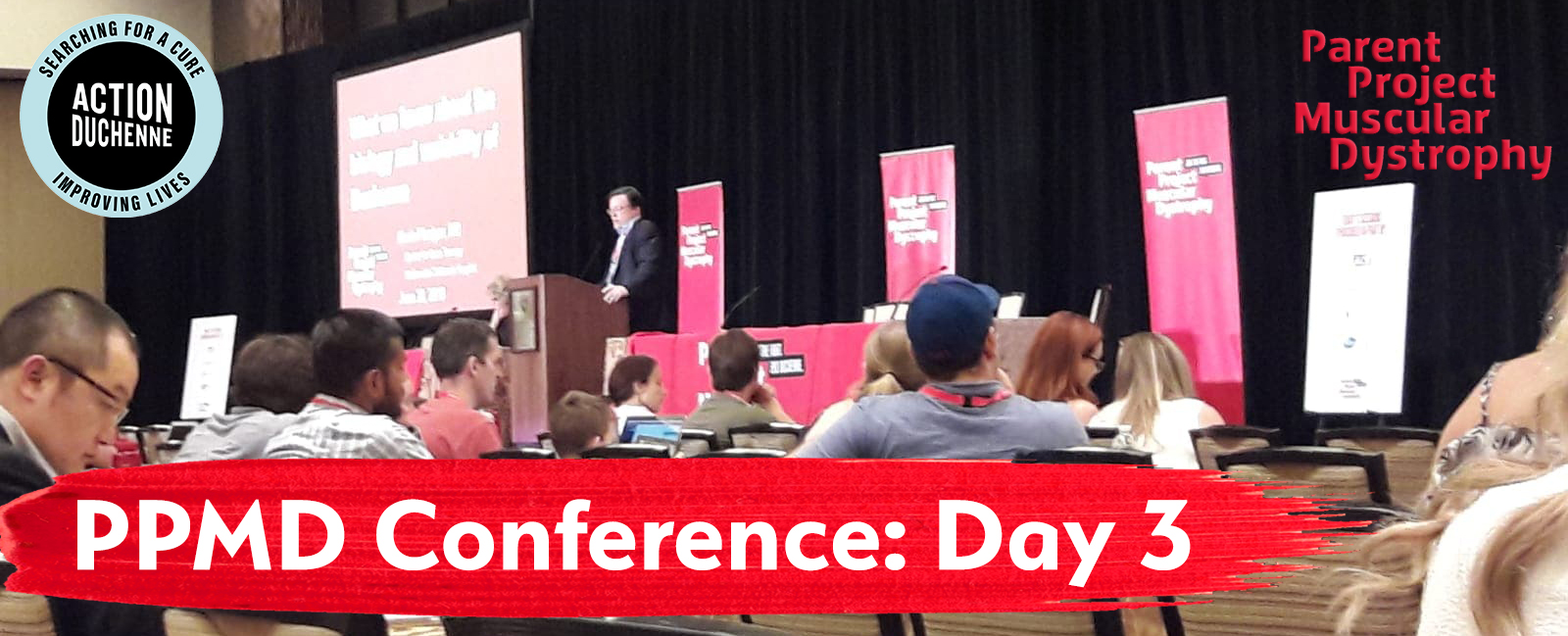
The final session on day 3 of the Parent Project Muscular Dystrophy Conference focused on the slow the reduction in muscle strength or function.
Pfizer and Roche talked about their trials of potential drugs designed to stop myostatin working properly. Myostatin is a protein that the body uses to control muscle growth, and researchers hope that inhibiting myostatin could increase muscle mass in people living with Duchenne. Results of these trials should be available in the coming years and we’ll keep you updated as we hear more.
Talks also covered trials of potential drugs for the heart and lungs, with Santhera discussing Raxone (available under the Early Access to Medicines Scheme in the UK) and Phrixus discussing ongoing early stage trials of a drug that could slow heart damage.
Day 3 also saw an extra, unscheduled talk from Tivorsan. They are currently developing a potential treatment called biglycan that targets the utrophin pathway in a very different way to Summit’s ezutromid. Although ezutromid showed no benefit in trials, that doesn’t mean that all strategies targeting utrophin won’t work; it simply means that ezutromid didn’t work as researchers hoped it would. Tivorsan is currently performing tests in animal models and is planning an early stage clinical trial.
This really highlights the importance of testing many different therapeutic approaches: if one should fail, there are many others that continue. And it’s been clear this week just how many different approaches are being tested right now in Duchenne muscular dystrophy.
For more information, please contact Neil directly 020 7250 8240 or neil@actionduchenne.org

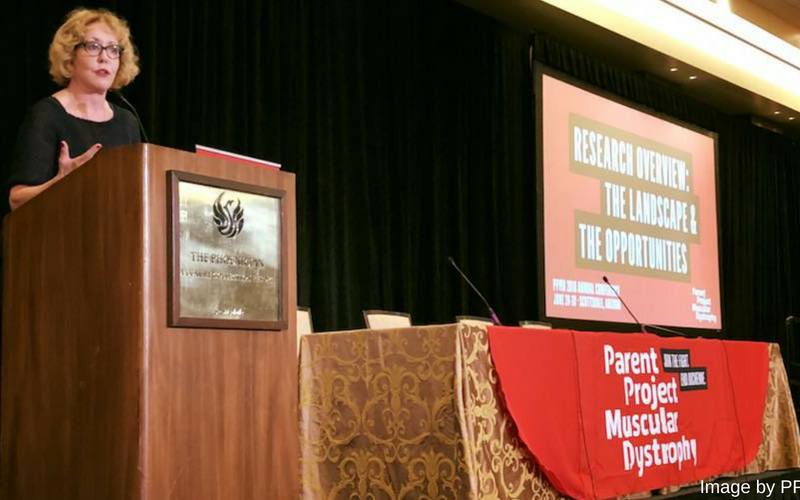
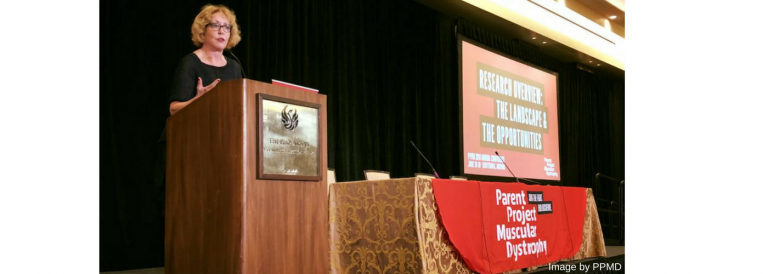
 Summit announces results of PhaseOut DMD clinical trial of Ezutromid
Summit announces results of PhaseOut DMD clinical trial of Ezutromid

